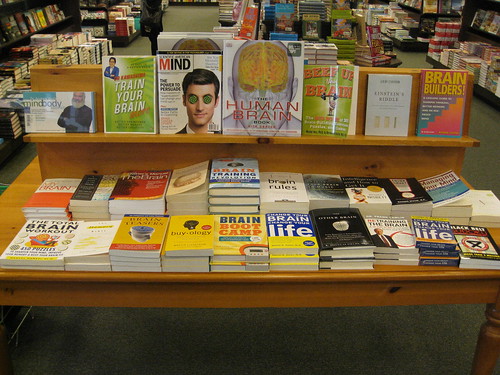
Most elderly suffer from memory loss and other issues related to the decline of their cognitive functions. When it sets in, it causes emotional turbulence for both the sufferer and their immediate social circle. This article contains advice for coping with mental decline and memory loss.
Brain
Exercise is an important part of boosting your memory. Exercising increases blood flow to your brain, which preserves cognitive function. Given that memory is essentially a function of the brain, ensuring that it remains healthy is a great way to preserve mental recall. Working out is also a great way to prevent illnesses such as diabetes, which some believe can significantly harm memory.
Profound memory loss is a tragic consequence of aging for many people. Prescription medication is an excellent way to help prevent this tragic occurrence, particularly in patients with dementia.
It’s vital that you keep learning on a daily basis long after you’ve left school. If you aren’t learning new things, you’re not using an essential part of your brain that will help strengthen your memory. Then, when you have to recall something, you might discover that it is difficult for you.
Use a calendar and a day planner to keep track of events. Get yourself a daily planner and write down key information. Keep a schedule and be sure to glance at it occasionally. Your mind will be helped by constantly looking at these things. Your brain won’t have to remember as much and it’s convenient if you ever forget something.
To improve mental performance and retention, eat brain food. There are fats that are beneficial to the health of your brain. Stay away from trans fats. Instead, consume fish, walnuts, and oil from flax seeds.
To remember something, create a melody by putting it to music. The fact that a child can learn the alphabet quickly through song is proof that this method works. Any repetition with melody makes it easier to remember. Try to sing the next thing you think about, and be amazed by the ease with which you can remember it.
Practice techniques to hone your memory skills. Some great ways to train the brain include learning new skills or things that involve detail. One such method involves teaching yourself a game that requires you to recall a series of rules.
As you get older, your memory will occasionally fail you. However, there are strategies that you can use that will help with this situation. This process can be augmented by a healthy diet, adequate rest, regular exercise, a steady supply of laughter, minimal stress, and mentally stimulating games and activities, such as chess and crossword puzzles.
When we think of aging loved ones, we often think of memory loss. This is an unfortunate symptom of age but part of the natural stages of life. There is hope, though, and memory loss does not have to be accepted as inevitable. Try applying a couple of the above tips every day to see how they can improve your memory.
